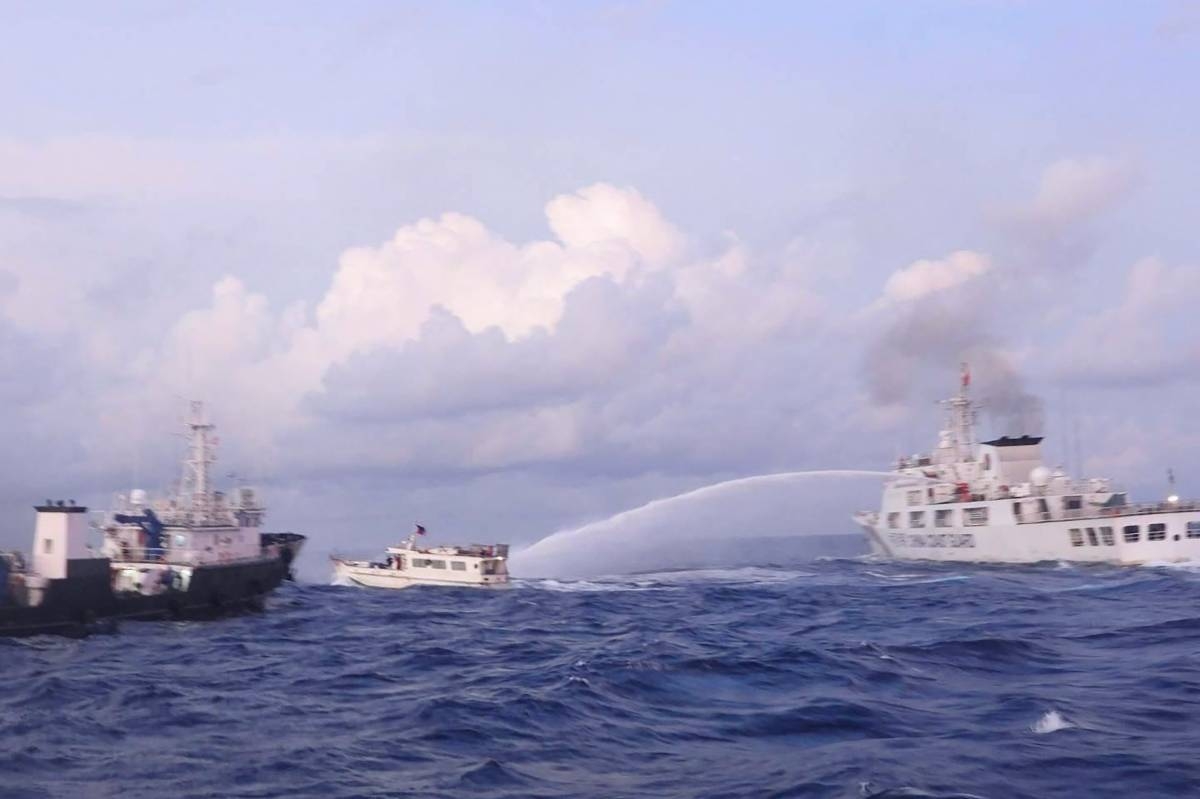China has defended its Coast Guard’s actions against Philippine vessels in the disputed West Philippine Sea, calling them “professional” and “restrained.” The Chinese foreign ministry spokesperson, Mao Ning, stated that the Coast Guard took necessary measures in accordance with domestic and international law.
Beijing’s response comes after videos released by the Philippine Coast Guard showed Chinese ships using water cannons against Philippine boats during resupply missions to fishermen at Bajo de Masinloc (Scarborough Shoal) and a garrison at Ayungin Shoal (Second Thomas Shoal).
In response to the incidents, the Philippines summoned China’s envoy and raised the possibility of expelling him. This marks one of the most tense confrontations between the two countries’ vessels in years at flashpoint reefs in the disputed South China Sea.
China’s foreign ministry spokesperson, Mao Ning, expressed the country’s strong protest and stated that stern representations had been lodged with the Philippines. She also emphasized that the responsibility for the tense situations lies entirely with the Philippines.
Mao Ning referred to the Second Thomas Shoal by its Chinese name, Ren’ai Reef, and accused the Philippines of breaking its promise by refusing to tow away an illegally beached warship. She claimed that the Philippines attempted to carry out large-scale reinforcements and achieve permanent occupation.
The collision between Philippine and Chinese boats at Second Thomas Shoal further escalated tensions. The incident occurred at the location where a handful of Filipino troops are stationed on a grounded warship. Both countries have traded blame for the collision.
It is important to note that the actions and statements from both sides need to be understood within the context of the longstanding territorial disputes in the South China Sea. The area is claimed by multiple countries, including China, the Philippines, Vietnam, Malaysia, Taiwan, and Brunei.
The West Philippine Sea, which is part of the South China Sea, is strategically important due to its rich natural resources and shipping routes. The disputes over the area have been a source of tension and have led to increased military presence and occasional confrontations.
While China claims historical rights over most of the South China Sea, the Philippines has sought international arbitration to resolve the disputes. In 2016, an international tribunal ruled in favor of the Philippines, invalidating China’s claims based on its “nine-dash line” map.
However, China has consistently rejected the ruling and continued to assert its territorial claims. This has resulted in ongoing tensions and occasional clashes between Chinese and Philippine vessels.
The recent incidents highlight the fragile nature of the situation in the West Philippine Sea and the need for diplomatic efforts to resolve the disputes peacefully. Both China and the Philippines, as well as other claimant countries, should engage in dialogue and adhere to international law to avoid further escalation of tensions.
It is crucial for all parties involved to prioritize the safety of fishermen and other personnel in the disputed waters. The use of water cannons and other aggressive tactics only heightens the risk of accidents and potential escalation into more serious conflicts.
Efforts should be made to establish mechanisms for communication and cooperation to prevent misunderstandings and reduce the likelihood of confrontations. Confidence-building measures, such as joint patrols or cooperative resource exploration, could also contribute to easing tensions and fostering a more stable environment in the region.
In conclusion, the recent confrontations between Chinese and Philippine vessels in the West Philippine Sea underscore the ongoing territorial disputes in the South China Sea. Both countries need to exercise restraint, engage in diplomatic dialogue, and adhere to international law to prevent further escalation of tensions. The safety of personnel and the peaceful resolution of disputes should be the top priorities for all parties involved.







